Strategy aims to minimize public backlash from larger, sporadic hikes after multi-year intervals
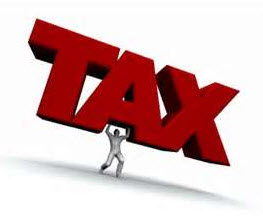 At its October meeting, Yavapai Community College (YCC) leadership informed the District Governing Board that it has adopted a strategy of annually requesting a one percent increase in County property taxes. This incremental approach is set to begin this year, under the guise of softening public reaction to periodic hikes.
At its October meeting, Yavapai Community College (YCC) leadership informed the District Governing Board that it has adopted a strategy of annually requesting a one percent increase in County property taxes. This incremental approach is set to begin this year, under the guise of softening public reaction to periodic hikes.
The rationale behind this approach is, essentially, a public relations tactic. By asking for smaller, annual increases, the College aims to avoid the backlash that might accompany a sudden four or five percent hike after several years without any adjustments. This is a calculated move to manage perception.
However, it is important to highlight that the Governing Board holds the authority to approve far larger increases at any time. There is no policy or restriction preventing them from raising taxes beyond the one percent threshold if they choose.
Notably, over the past two years, the Governing Board has approved substantial property tax increases of 5% and 3.4%, underscoring their willingness to meet the College leadership’s requests for additional funding. This history raises questions about the long-term financial strategy at YCC and the true necessity of annual tax increases on County residents.
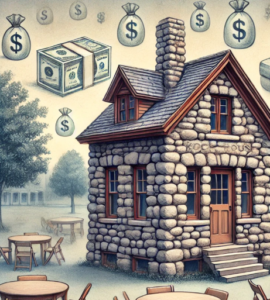 OPINION: All three of the recent Community College presidents have invested in upgrades in the Rock House on the Prescott Campus over the past several years. This facility is used, as far as the Blog knows, for about a half dozen or so times annually to hold Community College District Governing Board meetings and little else. Are these upgrades worth it, especially when there is little to no transparency regarding the actual final total costs?
OPINION: All three of the recent Community College presidents have invested in upgrades in the Rock House on the Prescott Campus over the past several years. This facility is used, as far as the Blog knows, for about a half dozen or so times annually to hold Community College District Governing Board meetings and little else. Are these upgrades worth it, especially when there is little to no transparency regarding the actual final total costs?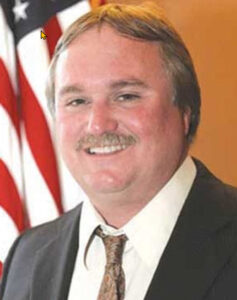
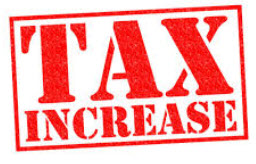 Ray Sigafoos is the longest serving member of the Yavapai Community College District Governing Board with 18 years of service. He is running once again for the position in November.
Ray Sigafoos is the longest serving member of the Yavapai Community College District Governing Board with 18 years of service. He is running once again for the position in November.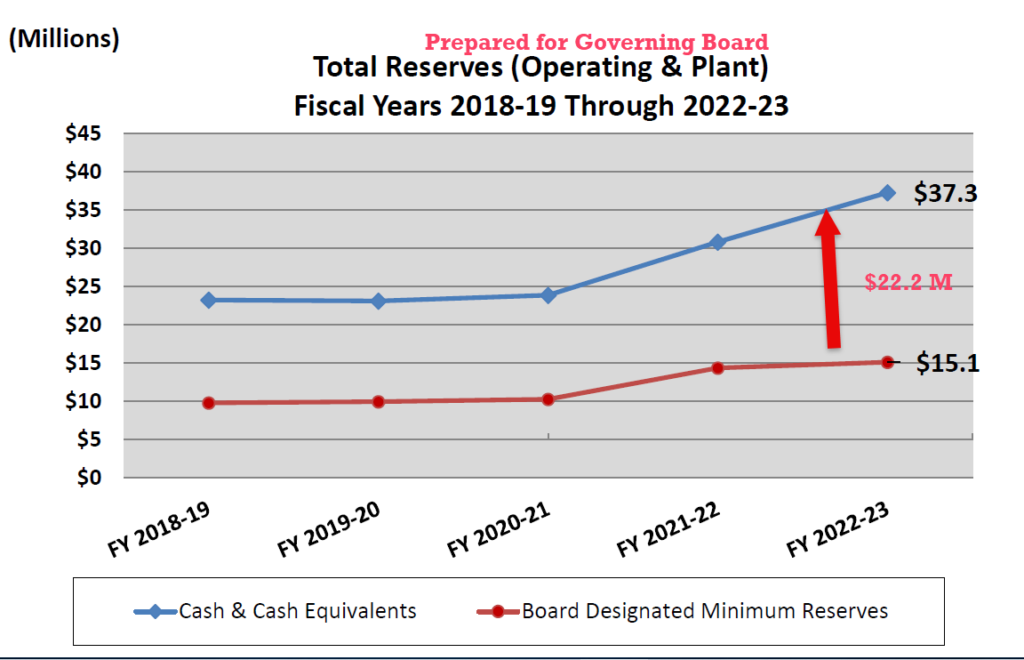

 Yavapai Community College is seeking significant funding from new sources to successfully complete its extensive capital expenditure plan on the west side of Yavapai County. While estimates vary, the College may need as much as $60 million to complete three major capital projects.
Yavapai Community College is seeking significant funding from new sources to successfully complete its extensive capital expenditure plan on the west side of Yavapai County. While estimates vary, the College may need as much as $60 million to complete three major capital projects.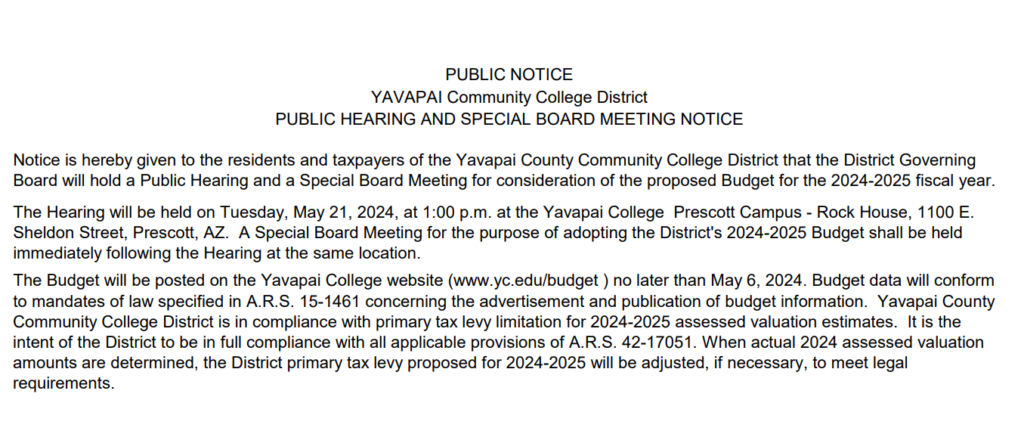
 The Yavapai Community College District Governing Board meeting will be held at the Sedona Campus on Tuesday, March 19. The session will commence promptly at 1:00 p.m. Residents are invited to voice their concerns or opinions to the District Governing Board during the call to the public, typically held at the outset of the meeting.
The Yavapai Community College District Governing Board meeting will be held at the Sedona Campus on Tuesday, March 19. The session will commence promptly at 1:00 p.m. Residents are invited to voice their concerns or opinions to the District Governing Board during the call to the public, typically held at the outset of the meeting.